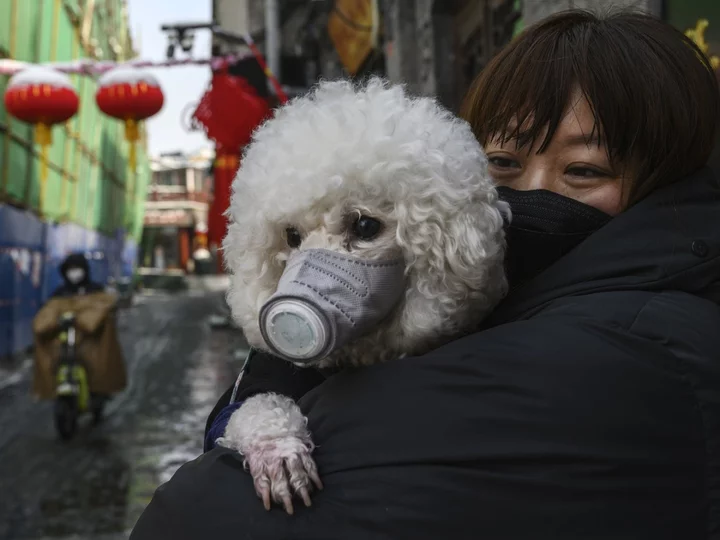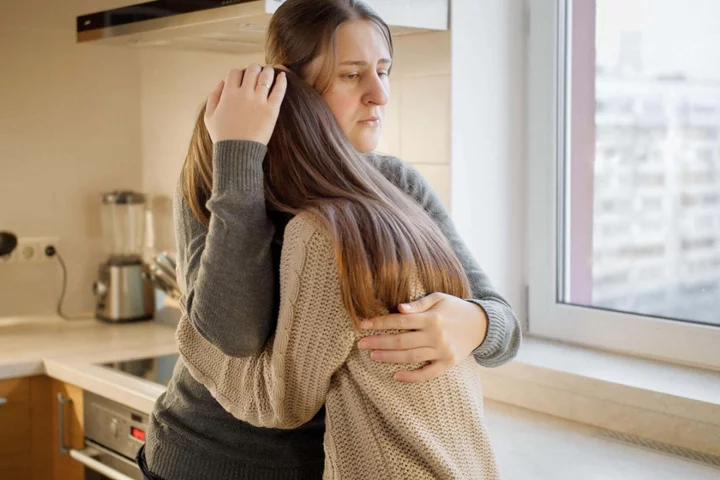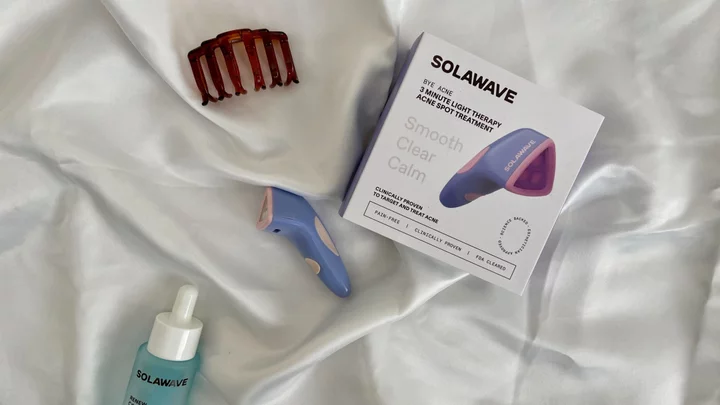Coronavirus: Can your dog or cat get Covid-19 and can you catch it from your pet?
In February a pet dog in Hong Kong tested ‘weak positive‘ for coronavirus and was placed into quarantine. The Agriculture, Fisheries and Conservation Department (AFCD) in Hong Kong confirmed that repeated tests suggested the dog had a “low-level” of the virus and that it was likely to be the case of human-to-animal transmission. The dog, a Pomeranian, had not shown any symptoms for the illness but its owner was confirmed as being infected with Covid-19. Now pet owners are becoming increasingly concerned they could catch the deadly disease from their animals - but is that scientifically possible? Can I catch coronavirus from my pet? On 2 April a Chinese study showed that cats are "highly susceptible" to coronavirus and it can easily be passed between them. But only five cats were involved in the experiment. This follows the news that a cat reportedly contracted coronavirus in Belgium but health authorities in the country said it was an "isolated case" and not "the rule". There are still no reports of animals in the UK with coronavirus. On 13 March the World Health Organisation said "at present there is no evidence that companion animals/pets such as dogs or cats can be infected with the new coronavirus". Several global health organisations have issued advisories saying there is no any evidence that pet animals can spread coronavirus or indeed be infected with it in the same way as humans. “Therefore, there is no justification in taking measures against companion animals which may compromise their welfare,” the World Organisation for Animal Health has said. The Centers for Disease Control and Prevention concurred that “there is no reason to think that any animals including pets in the United States might be a source of infection with this new coronavirus”. Raymond R.R. Rowland, a veterinarian who specialises in swine viruses at Kansas State University, said that “weak positives” frequently show up in testing pigs, where a farmer’s livelihood can be at stake. “I’ll tell you what I tell them,” he told The New York Times. “Wait and see.” Even if the Pomeranian has a low-level infection, he said: “that doesn’t say the animal is sufficiently infected that it can spread the virus.” The dog could simply be a host for the illness that neither becomes unwell or infects other people or animals. Should I change my behaviour with my pet? The World Health Organisation says: "It is always a good idea to wash your hands with soap and water after contact with pets. “This protects you against various common bacteria such as E.coli and Salmonella that can pass between pets and humans.” To protect yourself from catching coronavirus, the WHO advises the following: Cover your mouth and nose while sneezing, with a tissue or your elbow Put the tissue straight into a closed bin Wash your hands afterwards, and then frequently, with soap or sanitiser Keep your distance from people who are coughing and sneezing (at least one metre) [[Updated UK government advice also says people should stay at home and practice social distancing]. You can read more about the WHO’s advice on coronavirus here. Read More What are symptoms of coronavirus – and where has it spread? Latest travel updates as coronavirus continues to spread Can face masks really protect you against coronavirus or flu? The dirty truth about washing your hands Greg Rutherford had mystery allergy left him ‘screaming and clawing at his skin’ What is Lyme disease? Bella Hadid reveals ’15 years of invisible suffering’ Study reveals how muscle cells deteriorate with age, hampering injury recovery
In February a pet dog in Hong Kong tested ‘weak positive‘ for coronavirus and was placed into quarantine.
The Agriculture, Fisheries and Conservation Department (AFCD) in Hong Kong confirmed that repeated tests suggested the dog had a “low-level” of the virus and that it was likely to be the case of human-to-animal transmission.
The dog, a Pomeranian, had not shown any symptoms for the illness but its owner was confirmed as being infected with Covid-19.
Now pet owners are becoming increasingly concerned they could catch the deadly disease from their animals - but is that scientifically possible?
Can I catch coronavirus from my pet?
On 2 April a Chinese study showed that cats are "highly susceptible" to coronavirus and it can easily be passed between them. But only five cats were involved in the experiment.
This follows the news that a cat reportedly contracted coronavirus in Belgium but health authorities in the country said it was an "isolated case" and not "the rule".
There are still no reports of animals in the UK with coronavirus.
On 13 March the World Health Organisation said "at present there is no evidence that companion animals/pets such as dogs or cats can be infected with the new coronavirus".
Several global health organisations have issued advisories saying there is no any evidence that pet animals can spread coronavirus or indeed be infected with it in the same way as humans.
“Therefore, there is no justification in taking measures against companion animals which may compromise their welfare,” the World Organisation for Animal Health has said.
The Centers for Disease Control and Prevention concurred that “there is no reason to think that any animals including pets in the United States might be a source of infection with this new coronavirus”.
Raymond R.R. Rowland, a veterinarian who specialises in swine viruses at Kansas State University, said that “weak positives” frequently show up in testing pigs, where a farmer’s livelihood can be at stake.
“I’ll tell you what I tell them,” he told The New York Times. “Wait and see.”
Even if the Pomeranian has a low-level infection, he said: “that doesn’t say the animal is sufficiently infected that it can spread the virus.”
The dog could simply be a host for the illness that neither becomes unwell or infects other people or animals.
Should I change my behaviour with my pet?
The World Health Organisation says: "It is always a good idea to wash your hands with soap and water after contact with pets.
“This protects you against various common bacteria such as E.coli and Salmonella that can pass between pets and humans.”
To protect yourself from catching coronavirus, the WHO advises the following:
- Cover your mouth and nose while sneezing, with a tissue or your elbow
- Put the tissue straight into a closed bin
- Wash your hands afterwards, and then frequently, with soap or sanitiser
- Keep your distance from people who are coughing and sneezing (at least one metre) [[Updated UK government advice also says people should stay at home and practice social distancing].
You can read more about the WHO’s advice on coronavirus here.
Read More
What are symptoms of coronavirus – and where has it spread?
Latest travel updates as coronavirus continues to spread
Can face masks really protect you against coronavirus or flu?
The dirty truth about washing your hands
Greg Rutherford had mystery allergy left him ‘screaming and clawing at his skin’
What is Lyme disease? Bella Hadid reveals ’15 years of invisible suffering’
Study reveals how muscle cells deteriorate with age, hampering injury recovery









